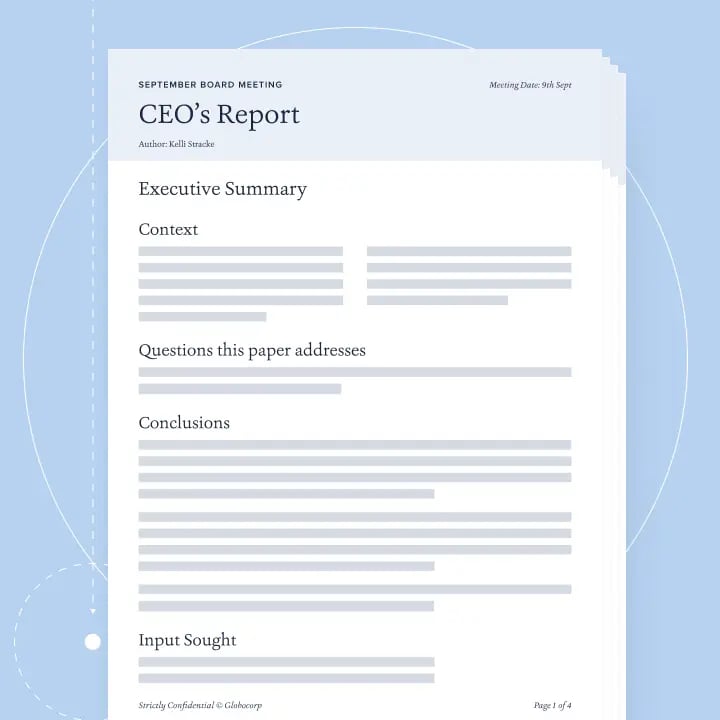Richard Burge is chief executive of the London Chamber of Commerce and Industry, and co-founder of ESG Validation. His previous roles include director general of the Zoological Society of London and chief executive of Wilton Park, an agency for global strategic debate that is part of the Foreign and Commonwealth Office.
Here, Richard reflects on chairing a Think Tank roundtable and lays down a challenge to his peers.
My challenge to business leaders
I was delighted to be asked to chair a Board Intelligence Think Tank debate about the role of business in building a fairer future. Since I first became a chief executive at the age of 36, I’ve had a hugely varied working life in the public and private sectors and this has given me a real appreciation of the importance of fairness in business.
Ultimately, fairness is a journey rather than a destination — it’s what you do while you are travelling, not what you achieve when you get there. It’s about individual actions, and making yourself accountable to others. So, if I could lay down one challenge to my fellow leaders, it would be this: at the end of every performance review you do, ask the person: “Have I been unfair to you at all in the past year?”
Be ready to challenge their answer when you need to — explain the wider context, and why your actions may have been fairer than they seem. But also be ready to admit it if they have a genuine point — none of us are perfect and even the most fair-minded people can make mistakes.
“Fairness is a journey rather than a destination.”
This doesn’t come naturally to all leaders. Where too many go wrong is to equate fairness with weakness, and then go out of their way to avoid being seen as weak.
Not only does this mentality spread a culture of unfairness through an organisation, these “hard men” leaders (and they usually are men) end up suffering too. It takes an enormous amount of emotional energy to maintain such a persona — to be someone who, outside of working hours, feels concerned about rising poverty, but at work will do a deal to force suppliers into a race to the bottom.
In contrast, it takes much less out of you emotionally to be a just, fair, and approachable leader — and this is rewarded when the positive behaviours you role model spread through your organisation. We’d all be better off if more leaders saw fairness as something that they can personally benefit from — as well as their employees, customers, suppliers, and society in general.
“Where too many go wrong is to equate fairness with weakness.”
That’s not to say that fairness is easy. It’s not — it is a deliberate, active process. Being fairer is a bit like trying to beat the second law of thermodynamics — you are acting against the natural entropy of the world, so it’s uphill all the way.
It means facing up to some real challenges, and not just brushing them under the carpet. You might say that you are a diverse employer, for example, but does your recruitment process really bear that out? Do you advertise your jobs in the places where people who are discriminated against because of their race, gender, or sexuality will see them — and really believe that they have a decent chance of getting a job with you?
Or, if you are a listed company whose dividends help pay people’s pensions — how do you square the fact that being fairer to your employees, customers, or suppliers might mean lower dividends and less money for those pensioners who may not have any other source of income?
Dilemmas like this can only be solved in the boardroom, and these conversations start with the chair. The best chairs I have worked with ask open questions, they don’t contradict or set traps to trip people up, and they don’t short-circuit the debate — theirs is always the last opinion to be heard.
If you can find — or learn to be — a great chair in this way, the fairness journey will be a far less bumpy one. Not just for you, but for your employees, suppliers, customers, and society too.
What we learnt by adding a seat to the table
Every Board Intelligence Think Tank roundtable features an unexpected guest, invited to bring a different viewpoint to the conversation. On this occasion, we heard from Dr Alexanders Malchevskis, a political refugee.
Alexanders’ point about money laundering was well made. When I was at Wilton Park we talked about the “four organised evils of the world” — the international trades in wildlife, drugs, counterfeit medicines, and human trafficking. All of these major transnational crimes are underpinned by money laundering.
What stayed with me after this debate was the question of whether you can regulate for fairness. I don’t think you can, because it depends on the individual — a fair person is fair whatever the rules say, while no amount of regulation will make an unfair person fairer.
Click here to read the full report on our roundtable findings.

A thinking and writing platform that helps you to write brilliantly clever and beautiful reports that surface breakthrough insights and spur your business to action.
Find out more


